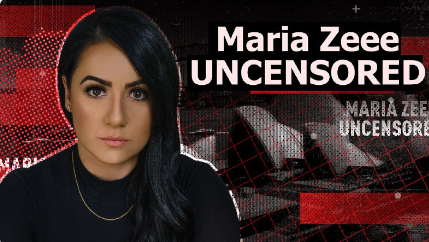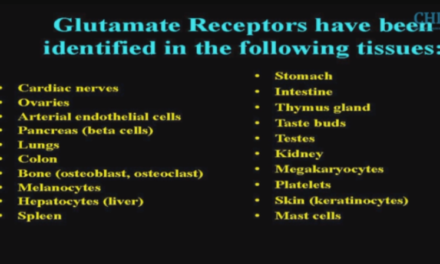In 2018, Canadian doctors were already openly discussing the possibility of harvesting organs from patients who have consented to euthanasia while they are still alive. This practice, sometimes referred to as “euthanasia by organ donation,” involves removing organs before the patient is declared dead. Although illegal, is it already happening?
The “dead donor rule” currently prohibits organ procurement until the donor is declared dead, typically five minutes after the heart has stopped beating. This means “euthanasia by organ donation,” or more accurately death by organ donation, is illegal. Changing the rules to allow it would require an amendment to the Criminal Code of Canada, as medical assistance in dying (“MAiD”) must involve the administration of medications, not organ extraction.
In Canada, MAiD was legalised in 2016. By March 2017, there had already been instances where organs were harvested from patients who underwent suicide by doctors. In Ontario, for example, 26 people who died by lethal injection had donated tissue or organs since the law came into effect. This practice expanded the pool of available organs but also sparked debates about the ethical implications and the potential pressure on patients to consent to euthanasia if they wish to be organ donors. At the time, organ harvesting after euthanasia was already a reality in Belgium and the Netherlands.
The threat of people merely being seen as a source of organs to be harvested arose again in November 2018 when Canadian doctors debated killing euthanasia victims by taking their organs.
“The best use of my organs, if I’m going to receive a medically assisted death, might be to not first kill me and then retrieve my organs, but to have my mode of death – as we medically consider death now – to be to retrieve my organs,” Rob Sibbald, an ethicist of the London Health Sciences Centre in Ontario, said.
Riddled with conflicts of interest, the event Sibbald was speaking at was sponsored by the Canadian Blood Services, a tissue and organ donation group; the Trillium Gift of Life Network which is “responsible for delivering and coordinating organ and tissue donation and transplantation across the province” of Ontario; and, the Canadian Donation and Transplantation Research Program, which hopes to “increase the availability of transplants.”
“Other Canadian doctors have publicly embraced ‘death by donation’, and a study came out [in January 2024] exploring euthanasia programmes such as MAiD as a means of organ harvesting,” The Federalist reported yesterday.
The Federalist goes on to explain that Canada is the top country for organ donations through euthanasia. But, as of December 2022, the health system still had an organ shortage. “Health officials could be trying to close gaps like these by killing patients to harvest their organs,” The Federalist said.
Adding, “In Ontario, euthanasia deaths boosted organ donations in 2020. In Quebec, 14 per cent of organ donors were MAiD victims in 2022. One article in the Canadian Medical Association Journal includes a diagram of the MAiD to organ harvesting pipeline. This was from 2019 when euthanasia was only allowed for those with foreseeable deaths. Now, doctors can end the lives of patients with unforeseeable deaths.”
It’s not only organ harvesting for the domestic market that is cause for huge concern.
Angelina Ireland is the executive director of the Delta Hospice Society, an end-of-life care facility that the Canadian government shut down and subsequently took over due to its refusal to comply with the provincial MAiD policy. She warned, “They are now talking about ‘pre-mortem’ interventions to harvest organs of MAiD recipients” and there is “plenty of room for abuse.”
Ireland cited the book ‘The Red Market’, which traced human trafficking and organ harvesting around the world. “You can get big, big money on the world market,” she said. “We have opened ourselves up to some horrific stuff.”
A 2020 research paper published in the Library of the Canadian Parliament provided an overview of organ trafficking. It stated [emphasis added]:
The desperate need for organ transplantation surgeries has given rise to a lucrative, transnational criminal enterprise that enables organ seekers to purchase organs from donors. This enterprise, commonly referred to as organ trafficking, is a global phenomenon. Even though it is illegal in most countries, some estimates indicate that trafficked organs account for up to 10% of organ transplants performed around the world, with profits conservatively estimated to be between US$840 million to US$1.7 billion annually.
Illegally trafficked organs are very expensive. According to some reports, the cost of a kidney, the most commonly trafficked organ, can range from US$50,000 to US$120,000. Thus, purchasers are normally wealthy persons from developed nations such as Canada. Because the purchase is generally conducted through a vast network that includes a broker who acts as an intermediary between the organ buyer and seller, a local recruiter, as well as medical professionals and local hospitals performing the illicit organ removal, very little money is left for the “donor.” Victims are commonly from poor and vulnerable populations in developing countries. Many are reported to have been misled, coerced or otherwise forced into selling their organs.
Trafficking in Human Organs: An Overview, Executive Summary, Library of Parliament, Parliament of Canada, 21 October 2020
What’s stopping poor and vulnerable people in Canada from being misled, coerced or otherwise forced into selling their organs as part of the MAiD programme? There are many examples of people in Canada being pressured to accept MAiD. If “healthcare” professionals have crossed moral boundaries and overridden their God-given conscience by pressuring patients to allow a doctor to kill them, how difficult would it be for those morally disengaged “healthcare” professionals to take the next step and coerce patients into submitting to “euthanasia by organ donation”? Especially considering that these same professionals could personally profit from the sale of their patients’ organs.
Could it already be happening?
Consider the recent case involving former Montreal City Councillor Nicolas Tétrault’s son. Tétrault says that staff at Montreal Children’s Hospital said they would “harvest the organs” of his son, Arthur, and kill him after he was declared unlikely to survive. Tétrault had to flee to the United States with his family. He was able to transport his son to the Ochsner Medical Centre in New Orleans via air ambulance to get proper and urgent care. His son is now off a ventilator and is recovering.
If Tétrault’s story doesn’t send shivers down your spine about the deadly and potentially lucrative “euthanasia by organ donation,” then you shouldn’t be allowed anywhere near children, the sick, the elderly, the disabled or any other vulnerable members of society, in any capacity.
Sources for this article include:
- Doctors harvesting organs from Canadian patients who underwent medically assisted death, National Post, 20 March 2017
- ‘Death by donation’: Why some doctors say organs should be removed from some patients before they die, National Post, 22 March 2019
- Canadian Doctors Suggest Harvesting Organs From Euthanasia Patients Before They’re Dead, The Federalist, 8 January 2025
- Former Quebec politician says Canadian hospital wanted to ‘harvest the organs and kill’ his young son, LifeSiteNews, 2 January 2025
Source: https://expose-news.com/2025/01/09/assisted-dying-programmes-used-to-harvest-organs/
Bitchute: https://www.bitchut,e.com/channel/YBM3rvf5ydDM/
Telegram: https://t.me/Hopegirl587
EMF Protection Products: www.ftwproject.com
QEG Clean Energy Academy: www.cleanenergyacademy.com
Forbidden Tech Book: www.forbiddentech.website













